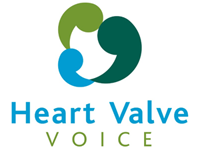Heart Valve Disease
QUICK LINKS
Top Tips for Heart-Healthy Living:
To support your recovery and enhance your overall health, consider integrating the following heart-healthy lifestyle changes:
- Eat a Heart-Healthy Diet: Focus on a diet rich in fruits, vegetables, low-fat or fat-free dairy products, poultry, fish, and whole grains. Minimize saturated and trans fats, as well as excess salt and sugar.
- Maintain a Healthy Weight: Aim to reach and maintain a healthy weight. If you are overweight or obese, consult your doctor about a suitable weight loss plan.
- Engage in Regular Physical Activity: Incorporate about 30 minutes of physical activity, such as brisk walking, into your daily routine.
- Manage Stress: Explore stress management techniques, including relaxation activities, meditation, physical exercise, and spending time with loved ones.
- Avoid Tobacco: If you smoke, seek assistance to quit. Your doctor can provide resources and support, and joining a support group may be beneficial.
Focus on Mental Wellbeing:
Addressing mental health is as important as physical recovery. Support your psychological well-being during your journey from diagnosis to treatment.
- Talking Therapies: Consider talking therapies such as counselling and psychotherapy to help manage mental well-being. Discuss these options with your GP, who can provide referrals.
- Support from Heart Valve Voice: For support and information about your valve disease journey, you can reach out to Heart Valve Voice at info@heartvalvevoice.com. While we cannot provide specific clinical advice, our Patient Advocate Group, comprising individuals who have undergone heart valve treatment, can offer insights and support.
Mindfulness
Mindfulness has proven to be very successful in supporting mental wellbeing, and we were delighted to have Katie Sheen, from Soul Nutrition, join us to deliver her “Discovering Mindfulness’ webinar. Katie is an experienced Mindfulness teacher and has been curating workshops for students of all abilities for the last few years, you can access her gentle introduction to Mindfulness here, or go to her website to discover more about Mindfulness.
Click here to view our videos on Mindfulness
Tips for family, friends and carers
They will most likely be checked within four to six weeks following surgery for a post-operative visit. After that, it is critical to get regular check-ups by a heart specialist or your GP. Clarify with your valve clinic what symptoms would warrant a phone call or an additional recheck. Whenever they have questions or concerns or if they experience any unusual symptoms or changes in their overall health, it never hurts to call and ask.
Heart Valve Disease
QUICK LINKS



